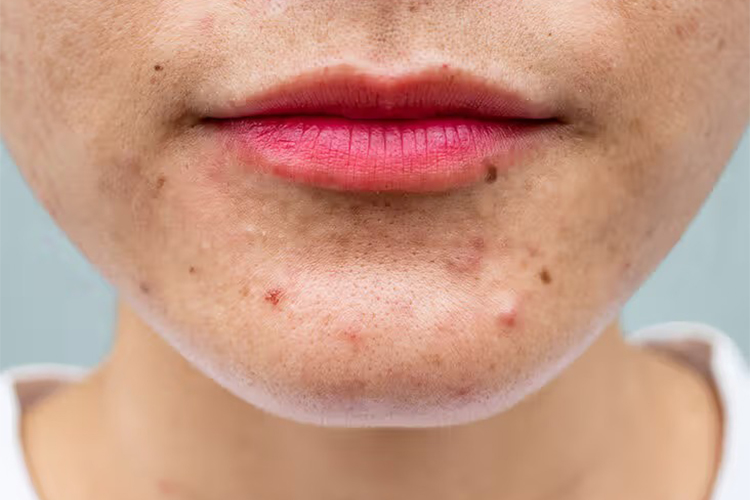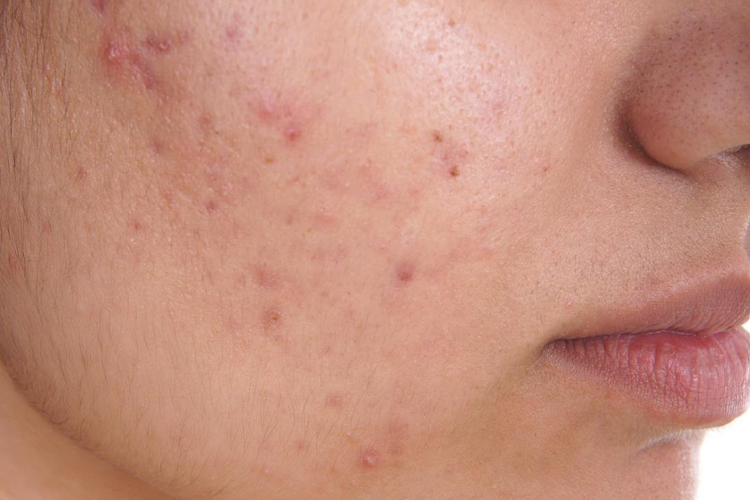
Whiteheads, also known as closed comedones, are a type of acne that appear when dead skin cells, oil, and bacteria get stuck in the pores. On the skin, they frequently have small bumps that are white or flesh-colored. Whiteheads aren’t harmful, but they can be frustrating and hurt a person’s self-esteem. Fortunately, whiteheads can be treated and managed through a combination of changes to one’s lifestyle and skincare routines.
How to effectively treat whiteheads includes the following:

Whiteheads are a common form of acne that is characterized by small, white or flesh-colored bumps that appear on the skin. While whiteheads are not harmful, they can be frustrating and can have an impact on an individual’s self-esteem. In addition to their cosmetic effect, whiteheads can also lead to skin irritation and inflammation, which can worsen over time.
The effects of whiteheads on the skin can vary depending on the severity of the breakouts. Mild whiteheads may appear as small, painless bumps on the skin, while more severe cases may lead to painful, inflamed acne cysts under the skin. In addition to the physical effects, whiteheads can also have a significant psychological impact on individuals, particularly teenagers and young adults.

One of the most common effects of whiteheads is skin inflammation. Whiteheads occur when pores become clogged with dead skin cells, oil, and bacteria. As the clogged pore becomes inflamed, it can cause redness, swelling, and tenderness in the surrounding area. This inflammation can also lead to the formation of more whiteheads and other types of acne if left untreated.
Whiteheads can also lead to scarring if not properly treated. When the pore becomes clogged, it can cause a buildup of pressure that can damage the surrounding tissue. This damage can lead to scarring, particularly if the whiteheads are picked, squeezed, or manipulated in any way. Scarring can be particularly noticeable and difficult to treat in people with darker skin tones.
Individuals with whiteheads may also experience psychological effects, particularly if the breakouts are severe or persistent. Whiteheads can impact one’s self-esteem and confidence, particularly in social situations where appearances are important. In some cases, whiteheads can lead to feelings of anxiety or depression, particularly in teenagers and young adults who are already dealing with the stresses of adolescence.
Fortunately, whiteheads can be effectively treated and managed with a combination of lifestyle changes and skincare practices. One of the most effective ways to prevent and treat whiteheads is by establishing a daily skincare routine that includes gentle cleansing, exfoliating, and moisturizing. It’s also important to avoid picking or squeezing whiteheads, as this can lead to scarring and further breakouts.
In addition to skincare practices, medical treatments may also be used to manage whiteheads. Over-the-counter medications, such as benzoyl peroxide or salicylic acid, can be effective for treating mild acne. Prescription medications, such as retinoids or antibiotics, may also be prescribed for more severe casesWhiteheads, also known as closed comedones, are a type of acne that occurs when hair follicles become clogged with dead skin cells, oil, and bacteria. Unlike blackheads, which are open and exposed to air, whiteheads remain closed under the skin’s surface, resulting in a raised white or flesh-colored bump. Whiteheads typically appear on areas of the skin that are prone to oil buildup, such as the face, neck, chest, back, and shoulders. While not usually harmful, whiteheads can be unsightly and can cause inflammation, scarring, and a variety of psychological effects. Fortunately, whiteheads can be effectively treated and managed with proper skincare and, in some cases, medical interventions.